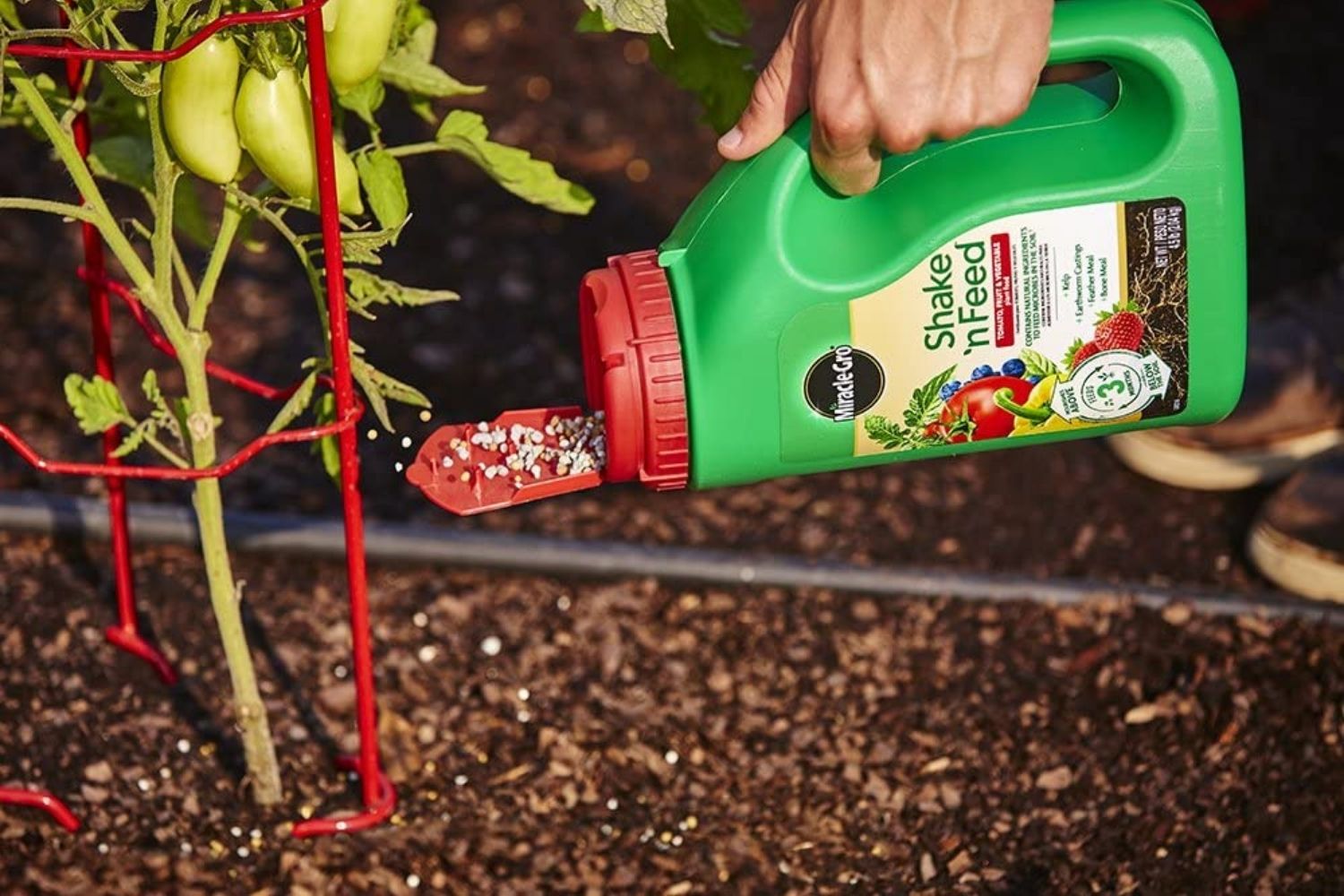Best Fertilizers for Peppers: Optimize Plant Health and Yield
Best Fertilizers for Peppers: Optimize Plant Health and Yield
Blog Article
Organic Vs. Synthetic Fertilizers: Which Is Best for Supporting Healthy Pepper Plants?
In the realm of nurturing healthy pepper plants, the choice between organic and artificial plant foods stands as a crucial choice with far-reaching effects. While both choices objective to offer vital nutrients to support plant growth, the subtleties of their influence on the soil, plant health and wellness, and the setting spark a dispute that mirrors throughout the horticulture neighborhood. Understanding the unique benefits and potential pitfalls of each plant food kind is crucial for pepper cultivators looking for to maximize their yields while preserving an eco-conscious and sustainable approach.
Advantages of Organic Plant Foods
Organic fertilizers offer a lasting and environmentally-friendly technique to nourishing pepper plants, offering important nutrients without using synthetic chemicals. These all-natural plant foods are stemmed from natural resources such as garden compost, manure, bone dish, and seaweed, advertising dirt health and biodiversity. Unlike synthetic plant foods, natural options release nutrients slowly, making certain a consistent and balanced supply for pepper plants to prosper.
One substantial advantage of organic fertilizers is their ability to boost dirt framework and water retention. By enhancing soil health, natural fertilizers promote helpful microbial activity, which aids in nutrient uptake by pepper plants. In addition, natural plant foods lower the risk of chemical run-off, shielding water sources from pollution and protecting the atmosphere.
Additionally, natural plant foods add to lasting soil fertility by advertising the development of beneficial dirt microorganisms. These microorganisms help break down raw material, releasing nutrients in a type that is quickly accessible to pepper plants. best fertilizers for peppers. By fostering a healthy dirt environment, organic plant foods support lasting pepper cultivation methods that profit both plants and the environment
Drawbacks of Synthetic Fertilizers
Artificial plant foods, unlike their natural counterparts, position different disadvantages when utilized to nurture pepper plants, impacting both plant health and ecological sustainability. One major disadvantage of synthetic plant foods is their propensity to seep nutrients from the soil quickly. This quick leaching can cause nutrition discrepancies in the soil, causing plants to experience from shortages or poisonings. Furthermore, synthetic fertilizers can damage advantageous dirt microorganisms, such as earthworms and helpful bacteria, disrupting the dirt community's equilibrium.
Furthermore, the overuse of artificial fertilizers can add to water contamination. Excess plant foods not taken in by plants can get rid of right into water bodies, resulting in eutrophication, where algae blossoms deplete oxygen levels in the water, damaging aquatic life. Moreover, artificial fertilizers are usually acquired from non-renewable sources, such as fossil gas, adding to carbon discharges and ecological destruction during their production.
Nutrient Absorption Comparison
Efficient nutrient absorption plays a critical role in the overall health and growth of pepper plants. When contrasting organic and synthetic plant foods in regards to nutrient absorption, organic fertilizers have the advantage of supplying an extra balanced and slow-release source of nutrients try this out (best fertilizers for peppers). Organic plant foods contain a range of macro and micronutrients that are not only advantageous for the plants but also advertise healthy and balanced soil microbial activity, which aids in nutrient uptake. On the other hand, artificial plant foods usually offer a fast launch of nutrients, which can result in seeping and runoff, resulting in lower nutrient absorption prices by the plants.
Furthermore, organic fertilizers improve dirt framework and water retention capability, enabling pepper plants to gain access to nutrients extra successfully. This improved soil high quality helps with origin advancement, making it possible for much better nutrient absorption. Synthetic fertilizers, although at first increasing plant development as a result of their high nutrient focus, might prevent long-term nutrient absorption by degrading dirt wellness in time.
Ecological Effect Considerations

On the other hand, synthetic plant foods, although usually even more concentrated and immediately available to plants, can have destructive impacts on the environment otherwise applied properly (best fertilizers for peppers). Their production requires high energy inputs, causing greenhouse gas emissions and adding to environment modification. The runoff of excess synthetic plant foods can contaminate water sources, leading to eutrophication and hurting marine ecological communities.
Best Fertilizer Practices for Peppers
To accomplish this, it is vital to adhere to ideal plant food methods tailored to the certain requirements of pepper plants. One vital practice is to perform a soil test prior to applying any plant foods.
An additional important practice is to fertilize pepper plants at the ideal time. Typically, peppers take advantage of getting plant food at planting and after that once more when they start to flower. Over-fertilizing can cause nutrition imbalances and damage the plants, so it is vital to comply with recommended application rates.
Furthermore, selecting a balanced plant food with an NPK proportion that fits pepper plants' demands is basic. Inevitably, integrating natural and artificial plant foods deliberately can help support healthy pepper plants while decreasing ecological influence.
Final Thought

Organic plant foods supply a sustainable and environmentally-friendly method to beneficial pepper plants, supplying crucial nutrients without the use of artificial chemicals. Unlike artificial fertilizers, organic options launch nutrients gradually, making certain a well balanced and consistent supply for pepper plants to grow.
Synthetic plant foods, in contrast to their natural counterparts, position numerous downsides when made use of to nurture pepper plants, influencing both plant health and wellness and ecological sustainability. When comparing synthetic and natural plant foods in terms of nutrient absorption, organic plant foods have the benefit of supplying a much more well balanced and slow-release source of nutrients.Moreover, natural fertilizers improve dirt structure and water retention ability, enabling pepper plants to accessibility nutrients extra successfully.
Report this page